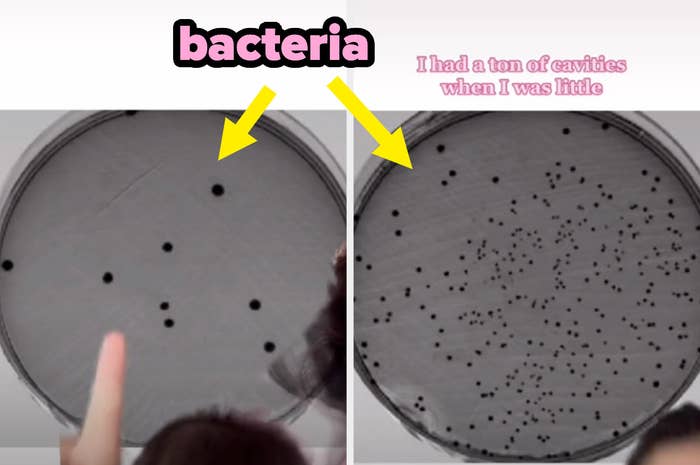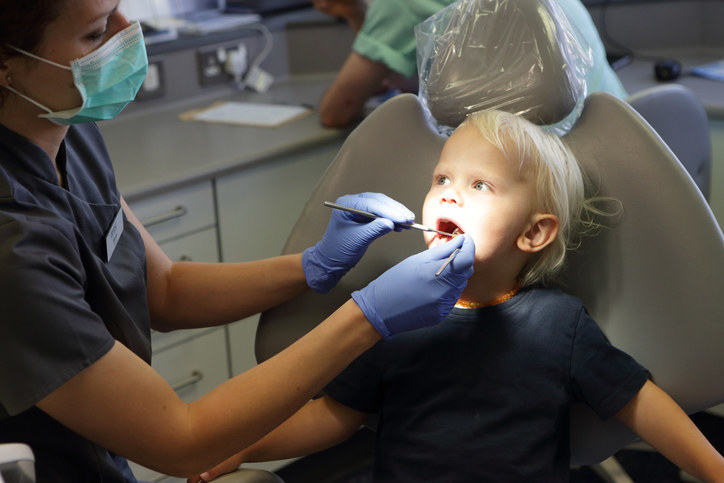Dr. Joyce Kahng, DDS, is a 35-year-old cosmetic and restorative dentist from Costa Mesa, California who owns Orange and Magnolia Dental Studio. She's also a mom, and she recently went viral on TikTok for her series explaining why she doesn't — under any circumstances — kiss her child on the lips:
In her most viral video — which currently has over 2.4 million views — Dr. Kahng explains that when she was in dental school, they did an experiment where they swabbed their mouths and grew their saliva in a petri dish. She found that she carried a larger amount of cavity-causing bacteria than her peers, which she could then pass on to her baby and also give him a lifetime of cavities. Hence, she made the decision that there would be no lip-kissing.

BuzzFeed reached out to Dr. Kahng for more details, and she confirmed that kissing on the lips — as well as other things, like sharing utensils — can indeed transfer cavity-causing bacteria, especially in young children.
"Bacteria can transfer through salivary exchange and this is more common for children, less common for adults," Dr. Kahng explained. "Children are not actually born with the bacteria that causes cavities. These bacteria are transferred to them at an early age, usually from their caregiver through activities like kissing and sharing utensils. After the age of 4 years old, a child’s oral microbiome has matured and is unique to them, making them more resistant during times of salivary exchange."

